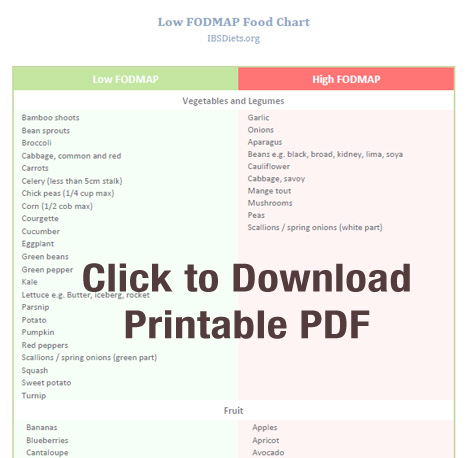Smart Ways to Manage Your Gestational Diabetes Diet Plan in 2025
Gestational diabetes can be a challenging aspect of pregnancy, requiring careful management to ensure both the mother's and baby's health. Adopting a well-structured gestational diabetes diet is crucial for maintaining balanced blood sugar levels. In this guide, we'll explore effective strategies for meal planning, including low glycemic foods, healthy snacks, and portion control to elevate your prenatal nutrition game.
The right diet not only supports blood sugar management but also enhances insulin sensitivity and can mitigate the risks associated with gestational diabetes. Additionally, we'll provide essential tips on meal timings, nutrient-dense foods, and hydration to support your overall health during this crucial period. You can expect to find practical advice, recipe ideas, and insights into how a holistic approach to nutrition can benefit your pregnancy.
Let’s dive deeper into the essential components of a gestational diabetes diet plan, helping you make informed choices for a healthy and happy pregnancy.
Creating a Balanced Gestational Diabetes Diet Plan
Building a balanced gestational diabetes diet plan starts with understanding the importance of nutrition education for prenatal health. Focusing on low glycemic foods can significantly aid in maintaining stable blood glucose levels. These foods are digested slowly, preventing rapid spikes in blood sugar.
Incorporating a variety of protein sources, whole grains, and fiber-rich foods into your meals is paramount. These not only offer necessary nutrients but also keep you feeling satiated. A typical plate could consist of a lean protein, a serving of whole grains, and an abundant portion of vibrant vegetables, providing essential vitamins and minerals while promoting stable insulin levels.
Consider tracking your meals with a food diary or employing a meal schedule to help manage your carbohydrate intake effectively. This approach allows you to observe how different foods affect your blood glucose levels, enabling you to make better dietary decisions over time.
Portion Control and Meal Timings
One of the critical factors in managing your gestational diabetes diet is understanding portion sizes. Learning to measure your food can help maintain blood sugar control while providing satisfaction. A portion guide can be an invaluable tool in this process.
Additionally, meal timings play a vital role in blood sugar management. Eating at regular intervals can prevent drastic changes in glucose levels. Aim for three balanced meals and two to three healthy snacks throughout the day. This structure supports consistent energy levels and helps maintain insulin sensitivity.
Hydration and Healthy Cooking Methods
Hydration is often overlooked but is essential in any diabetes-friendly diet. Aim to drink plenty of water throughout the day. Proper hydration aids in digestion and overall health, which can be particularly beneficial during pregnancy.
Moreover, the methods of cooking can impact the nutritional quality of your meals. Opting for healthy cooking methods—such as steaming, baking, or grilling—ensures nutrient preservation while minimizing unhealthy fats. Be mindful of cooking oils used, choosing healthier options like olive or avocado oil.
Snack Ideas and Healthy Foods
Healthy snacks can effectively keep your blood sugar levels stable between meals. Choosing options that are high in fiber and protein is wise; they can help you maintain energy and curb cravings without leading to blood sugar spikes.
Examples of great snacks include raw vegetables with hummus, Greek yogurt topped with nuts, or a small serving of cottage cheese with fruit. Each of these options provides essential nutrients while ensuring balanced blood glucose levels.
Choosing Low Glycemic Foods
Integrating low glycemic foods into your gestational diabetes diet plan is beneficial in managing blood sugar levels. Foods such as whole fruits, leafy greens, and legumes can be excellent choices. They not only offer essential vitamins and minerals but also contribute to overall digestive health.
Whole grains are another important feature of a healthy diet. Options like quinoa, brown rice, and whole-wheat bread provide complex carbohydrates that break down slowly. Pairing these with protein sources, such as lean meats, beans, or dairy alternatives, can lead to balanced meals that support glycemic control.
Recipe Ideas and Meal Prepping
Meal prepping is an effective strategy for ensuring you have nutritious options readily available. Prepare balanced meals in advance, dividing them into appropriate portion sizes to aid in managing cravings and ensuring you stick to your dietary guidelines.
Consider recipes that are simple yet nutritious, such as stir-fried vegetables with tofu or lean protein and a side of quinoa. Creating a monthly meal planner can help organize your meals and introduce variety into your diet to prevent repetition while ensuring proper nutrition.
Expert Recommendations and Lifestyle Adjustments
Consulting with healthcare providers or nutritionists is vital for tailored meal plans suited to your specific needs. They can provide insights into carb counting and help you develop dietary adjustments that factor in your lifestyle and personal preferences.
Engaging in physical activity, as approved by your healthcare provider, can also enhance blood sugar management. Regular exercise not only helps with weight management but can also contribute to long-term metabolic health.
Nutritional Balance and Community Support
Maintaining nutritional balance is key in managing gestational diabetes. Engage with local community resources or support groups focused on healthy pregnancy practices. Sharing experiences and resources with others can lead to better mental health and practical advice on maintaining a balanced diet.
Online platforms offering nutritional workshops or recipe adaptations focused on cultural foods can provide additional support. These resources can guide meal collaborations and give you insightful tips on making healthy choices while accommodating dietary restrictions.
Monitoring Your Progress and Adapting Diet Plans
Lastly, regularly monitoring your blood glucose levels is crucial. Tools like diabetes education can empower you to understand how various foods impact your health and allow for dietary adjustments to maximize your well-being.
As you adapt your meal plans according to your progress, don’t hesitate to reach out for expert guidance. Nutrition professionals can help you develop a holistic approach that aligns with your health goals while embracing a sustainable and healthy lifestyle.
 example.com/image2.png
example.com/image2.png
 example.com/image3.png
example.com/image3.png
By implementing these smart strategies and making lifestyle adjustments, you can effectively manage your gestational diabetes diet while ensuring a healthy pregnancy. Embrace this period with knowledge and support, and enjoy all the joys that come with it.
